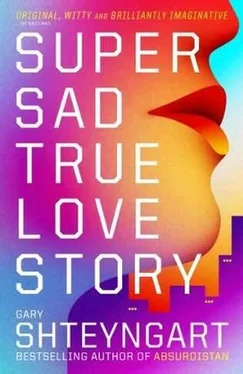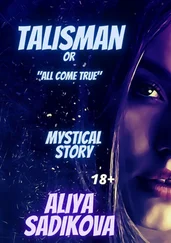Cedar Hill. This is where I start my walks in Central Park. Many years ago, after a violent breakup with an earlier girlfriend (a sad Russian I had dated out of some kind of perverse ethnic solidarity), I used to go to a young, recently accredited social worker just one block over on Madison. For under a hundred dollars every week, someone cared for me in these parts, even if, in the end, Janice Feingold, M.S.W., could not cure me of my fear of nonexistence. Her favorite question: “Why do you think you would be happier if you could live forever?”
After my sessions, I would decompress slowly with a book or an actual printed newspaper amidst the brilliant greenery of Cedar Hill. I would try to assimilate Ms. Feingold’s therapeutic view of me as someone worthy of the colors and graces of life, and this particular stretch of Central Park nicely brought home the point of all her good work. Depending on your viewing angle, the Hill can appear a collegiate New England lawn or a dense coniferous forest, gray rocks spread out glacially, cedars cautiously intermingling with pines. The Hill descends eastward to a tiny green valley, unfurling a cast of strollers, long-haired dachshunds wearing polka-dot bandanas, dexterous Anglo-Saxon children in full swing, dark-skinned caregivers, tourists on ethnic blankets enjoying the weather.
What a day it was! The middle of June, the trees coming into their own, the boughs filling abundantly. Everywhere youth for the taking. How to contain the natural reflex to stand up on one’s hind legs and sniff poignantly for the warmth of the sun? How to keep one’s mouth from finding Eunice’s and burrowing inside?
I pointed out a park sign that said “Passive Activities Encouraged.” “Funny, huh?” I said to Eunice.
“ You’re funny,” she said. She looked at me directly for the first time since she’d landed. There was her customary sneer curling the left side of her lower lip, but, per the sign’s directions, it was entirely passive. She put her hands forward, and the sun stroked them before they met the shadow of my own. We held hands briefly and then she looked away from me. Small doses , I thought. This is enough for right now . But then my mouth started talking. “Boy,” it said, “I could really learn to love-”
“I don’t want to hurt you, Lenny,” she interrupted me.
Easy. Easy does it . “I know you don’t,” I said. “You’re probably still in love with that guy in Italy.”
She sighed. “Everything I touch turns to shit,” she said, shaking her head, her whole face suddenly older and unforgiving. “I’m a walking disaster. What’s that ?”
It hurt my eyes to part company with her face. But I looked as directed. Someone had built a little wooden shack at the crest of the hill, adding to its rustic appeal. We languidly went up to investigate, I relishing the opportunity to observe her behind, which sat humbly, almost unnecessarily, atop two sturdy legs. I wondered how she would survive in the world without an ass. Everyone needs a cushion. Maybe I could be that for her.
The cabin wasn’t wooden actually, just some corrugated metal that had lost so much texture and paint it appeared primordial. A sunflower had been painted on it along with the words “my name aziz jamie tompkins I worked bus driver kicked out of home two days ago this is my space dont shoot.” A black man sat on a brick outside the shanty, gray sideburns like my own, an affected cap that on second examination proved to belong to the former Metropolitan Transportation Authority, and the rest of him unremarkable-white T-shirt, golden chain with an oversized yuan symbol-except for the expression on his face. Stunned. He sat there looking to the side, his mouth open, gently breathing in the beautiful air like an exhausted fish, utterly removed from the small crowd of New York natives who had formed respectfully a few yards away to watch his poverty, and the äppäräti-toting tourists just another few yards behind them, jostling for a sightline. From time to time, one could hear the fall of a metal pan inside his shanty, or the opening bars of an obsolete computer trying to boot up, or a woman’s low, displeased voice, but the man ignored it all, his eyes blank, one hand poised in midair as if practicing some quiet martial art, the other one scratching miserably at a patch of dead skin spreading along his calf.
“Is he poor?” Eunice asked.
“I guess so,” I said. “Middle-class.”
“He’s a bus driver,” a woman said.
“Was,” said another.
“They cleared him out for the central banker dude’s visit,” said a third.
“The Chinese Central Banker.” This was the first person, an older woman in an odorous T-shirt who clearly belonged to the marginal classes (what was she doing in this part of Manhattan anyway?). Several of her cohorts looked at Eunice, not in a friendly way. I wondered if I should declare to the gathering crowd that my new friend was not Chinese, but Eunice was absorbed by something on her äppärät, or pretending to be. “Don’t be scared, sweetie,” I whispered to her.
“He was living by the Van Wyck,” said the marginalized know-it-all. “They don’t want the Chinese banker seeing no poor people on the way from the airport. Make us look bad.”
“Harm Reduction,” a young black man said.
“What the hell’s he doing in the park ?”
“Restoration ’thority not going to like this. Uh-uh.”
“Hey, Aziz,” the black man yelled. There was no response. “Hey, brother. Better scoot out of here before the National Guard comes.” The man in the MTA cap continued to sit there, scratching and meditating. “You don’t want to end up in Troy ,” the younger man added. “They’ll get your lady too. You know what they’ll do.”
This Aziz guy must have been part of the new “bottom-up” Great Depression movement Nettie Fine was talking about. Only a few hours together, and Eunice and I were already witnesses to history! I took out my äppärät and started to take Images of the man, but the young black man yelled, “What the fuck you doing, son?”
“A friend of mine asked me to take an Image,” I said. “She works for the State Department.”
“ State Department? Are you fucking kidding me? You better put that thing away, Mr. 1520-Credit-ranking got-me-a-bitch-twenty-year-younger Bipartisan motherfucker!”
“I’m not a Bipartisan,” I said, although I did as I was told. Now I was completely confused. And a little scared. Who were these people all around me? Americans, I guess. But what did that even mean anymore?
The conversation behind me was turning to the sensitive subject of China-Worldwide. “Damn China banker,” someone was shouting. “When he comes, I’m going to cut up all my credit cards and throw them at him like confetti. I’m gonna shoot his lo mein ass.”
The Chinese tourists on the outer perimeter were starting to disband, and I thought it would be wise to move Eunice along too. I looped myself around her shoulders and gently walked her down the hill, away from anyone who could cause her harm, and toward the Model Boat Pond. “I’m okay, I’m okay,” she said, squeezing out of my embrace.
“Some of those folks looked a little street,” I said.
“And you were going to put your nerd moves on them?” Eunice said, laughing brightly.
Some vestigial teenage memory ran up and down my gut, making me cramp. I was perhaps the least popular child in secondary school. I never learned how to fight or carry myself like a man. “Stop calling me that, please,” I whispered, rubbing my stomach.
“Ha! I love it when my nerd feigns defiance.”
I growled a bit, taking note of her use of the possessive. My nerd. Would she really take ownership of me?
Читать дальше












